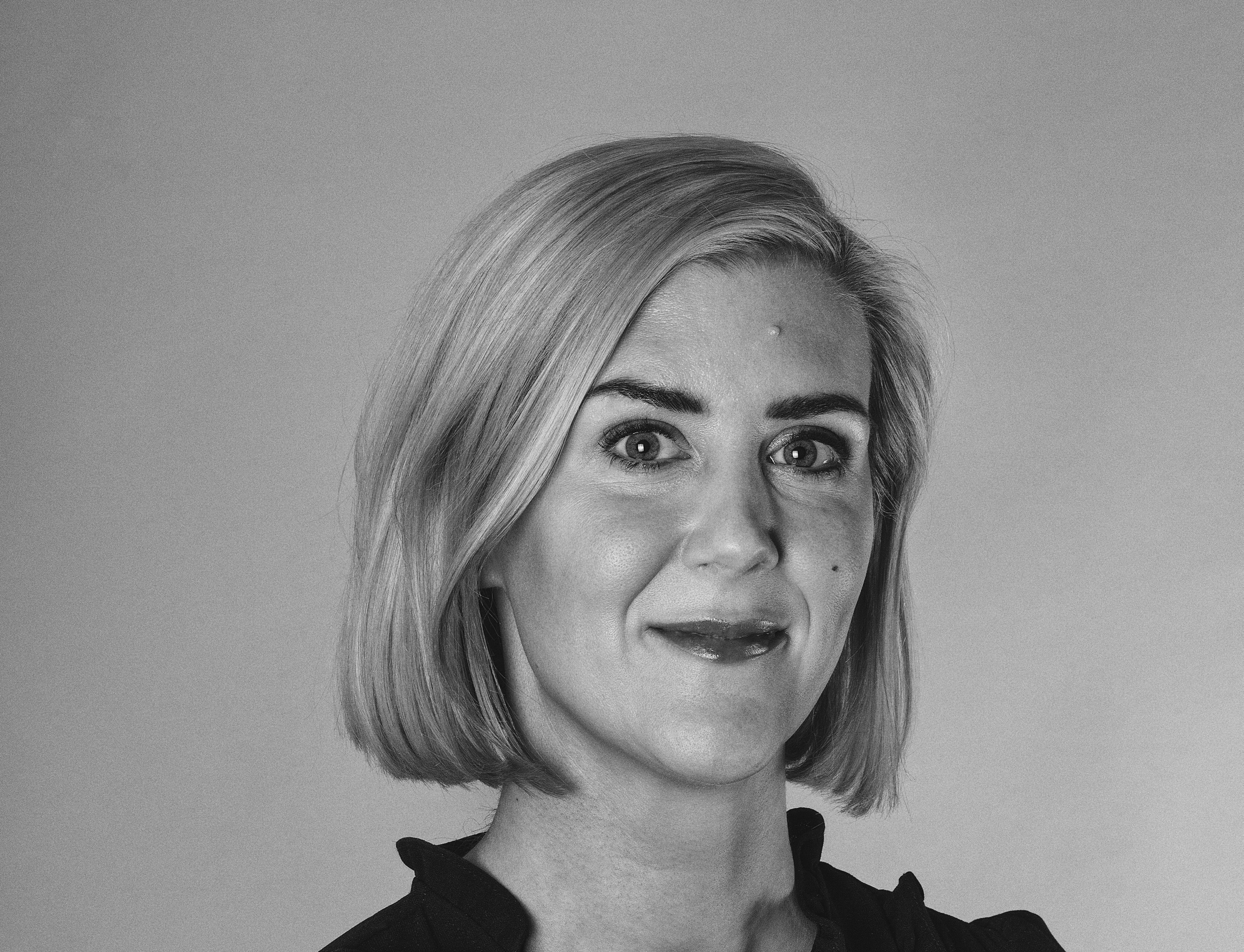Glowday founder Hannah Russell has been getting wrinkle relaxing treatments for several years, but what started her love affair with the anti-wrinkle injection? I spoke to her to find out more about her experience with the treatment, her top tips for finding a great practitioner and why she thinks the anti-wrinkle treatment is still seen as a taboo topic.
An interview with Glowday Co-Founder
When and why did you first decide to get anti-wrinkle treatments?
I knew after I'd had children I was going to get my forehead smoothed at some point. Then, we moved to Sydney for a year, back in 2016, and in the first month of living there, I frowned a lot - because it was so sunny - and I had this 11 that never went away. I felt like I looked permanently cross. The area we lived in was very affluent and everyone was getting chemical peels and toxin treatments - it was the norm that everybody looked phenomenal all the time. So, I started researching anti-wrinkle injections.
How did you choose your first practitioner?
I knew I'd see someone medically qualified but, other than that, I knew nothing. I looked at loads of Facebook reviews and, after a bit of research, I found a doctor who visited a salon close to where we were living, and I just booked in on Facebook messenger. I turned up for a consultation and I ended up having the treatment done then and there. I was so nervous that I think I nearly fainted, and I had no idea how much it was going to cost. I’d never even had a manicure or facial at that point - I just jumped straight into wrinkle relaxing.
What was your first treatment like?
I'm fairly needle-phobic and I'd worried about it more than I needed to. I actually felt quite a bit of pressure to have it done too. After my consultation, the practitioner said, "You know, you could come back, but I'm not here for another month. But we’re both here now, so we may as well just get on and do it."
Looking back, I would like to have had a more informed consultation, known how many times the needle was going to go in. The detailed benefits and risks. Also, I paid a crazy amount - around £360 for two areas, which compared to UK prices, is expensive. But, of course, 5-7 days later, when those lines had gone, I felt amazing.
I was so nervous at first, but it’s just so easy now that I'd rather go and have injectables than a haircut. They take less time and give great results.
Have injectable treatments affected your confidence?
Definitely. I will never not have wrinkle relaxing again. I’m naturally quite an expressive person and I find that when it starts to wear off, I frown more, get more tension headaches and migraines. Also, I’ve noticed that my makeup doesn't sit as well.
How often do you get anti-wrinkle treatments?
I don't book in religiously. I wait until I start to experience more movement or when I get a migraine, and then I make an appointment. I'd say I go once every 4-5 months. For me, it's more to halt my forehead ageing rather than to reverse it. Personally, I don't like to be completely frozen. I know some people do, but I like to have some movement and show how I'm feeling. I need the kids to know when they're pushing my buttons!
How did you choose your current practitioner?
I was a bit more informed this time round, and she has a better website so it was much easier to find her. Most people are still very hush-hush about the treatments they get, so I had to go back to Google to research local, medically qualified practitioners.
This time, although I had the treatment right after the consultation, I didn't feel anywhere near as much pressure as the first time. It felt like my practitioner was led by me rather than by what she thought should be done. She was just advising accordingly, based on my needs; I was setting the pace. And, the cost was much more transparent. In Sydney, it was priced per unit. But, of course, it's like, how much is a unit? How much does one unit treat and many units will I need in total? Whereas, in the UK, it tends to be priced by area, so it's much easier to know that if I want to treat my forehead lines, 11s and crow’s feet, it'll cost me X amount.
What’s your top tip for selecting a practitioner?
Well, obviously, Glowday is a great tool for searching for clinics and medically qualified practitioners. If you have friends and family who have treatments, recommendations are ideal. Other than that, I'd have no qualms booking consultations with a number of practitioners to get a feel for who's right for me. It's a bit like buying a house. You can walk in and think "this is the one for me". Afterall, it's someone you need to be able to trust with your face. Although injectables are not permanent, they last a significant amount of time, so you want them to be done right. Make sure your practitioner is medically qualified and make sure you've read some reviews and that you can judge how accurate and reliable those reviews are.
Why are injectables still so controversial, and is this attitude changing?
I hope it's going to change. I think it is changing with younger people. If you're in the 18-28 age group, you've been exposed to these treatments much more than someone who is maybe 35-40, so it's more normal. But the older you are, the less treatments are discussed.
What lots of people with an untrained eye won't appreciate is that these treatments are pretty common place. You generally won't see anyone in the media who hasn't had them. So, by not admitting to having them done, it's setting up a false set of ideals that people try to meet. For example, Jennifer Aniston looks incredible at 50. She doesn't look like any 50 year-old I see at the school gates, and that's because she's had a lot of very subtle, non-invasive work done. I think the more famous people are open and honest about treatments they’ve had done, that effect trickles down into wider society.
But I think there definitely seems to be some unwritten rule that women aged 35+ just don't discuss treatments like wrinkle relaxing treatments, fillers or Profhilo. Whereas, people seem more open about chemical peels or laser hair removal. It’s injectables that carry a stigma, which I find strange.
Why don’t people talk about injectable treatments?
I think you almost don't want to admit that you've sought to make yourself feel better in that kind of way, and yet, going to the gym and eating well are celebrated. But, when it comes to ageing well, we're taught to embrace ageing gracefully - which is not what some people want to do. I think that if there are ways that aren't harmful to you and you've researched and can afford these treatments - just like you'd pay for a gym membership or buy organic food - it's just another tool in your armoury of ageing well and looking good for longer.
Do you talk to your friends about getting treatments?
Yes. I think I'm probably unusual in the sense that I'm happy to discuss what I've had done. Over the last 5 years, I've had chemical peels, liquid rhinoplasty, microblading, microneedling, anti-wrinkle treatments, skin boosters, dermal filler - and I would never say never about getting a treatment, whereas some people are very vociferous and say, "Oh my gosh, I would never have 'THAT' injected into my face.”
I think you just need to be open and do your research, and as long as it's in your comfort zone, people should be able to do whatever they choose to do with their faces.
Why do you think the media is so anti-cosmetic treatments?
The media always focuses on the negative side of treatments. They never champion the good stuff. So, for example, they will never talk about how treatments gave a divorcee a new lease of life after a difficult time, or how fillers can treat concerns that have bothered someone to the extent that they refuse to have photos taken with their children. You only ever hear, "This beautician has injected this filler into this girl and her lips have fallen off."
The media will always choose a sensationalist type of headline rather than talking about how people have come out with clear skin after years of acne, or how tired mums are looking fresher after spending 50 minutes with their nurse prescriber. I think there will continue to be a stigma until the younger generations have come through with these treatments and are more open about what they've chosen to have done.
Botox is a registered trademark

